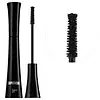Dior Diorshow 24h Buildable Volume Mascara Versus IT Cosmetics Superhero Elastic Stretch Volumizing and Lengthening Mascara
What's inside
What's inside
 Key Ingredients
Key Ingredients

 Benefits
Benefits

 Concerns
Concerns

 Ingredients Side-by-side
Ingredients Side-by-side

Water
Skin ConditioningGlyceryl Stearate
EmollientCera Alba
EmollientC18-36 Acid Triglyceride
EmollientHydroxypropyl Starch
Hydrogenated Olive Oil Stearyl Esters
Emulsion StabilisingSteareth-21
CleansingGlyceryl Hydrogenated Rosinate
Acacia Senegal Gum
MaskingCentaurea Cyanus Flower Water
Skin ConditioningLecithin
EmollientBetula Alba Juice
AstringentPalmitic Acid
EmollientSteareth-2
EmulsifyingStearic Acid
CleansingCaprylyl Glycol
EmollientAminomethyl Propanediol
BufferingSynthetic Fluorphlogopite
Xanthan Gum
EmulsifyingCopernicia Cerifera Wax
Hydroxyacetophenone
AntioxidantChlorphenesin
AntimicrobialPropanediol
SolventTocopheryl Acetate
AntioxidantCellulose
AbsorbentTin Oxide
AbrasivePotassium Sorbate
PreservativeSodium Benzoate
MaskingCitric Acid
BufferingCI 77499
Cosmetic ColorantCI 77891
Cosmetic ColorantWater, Glyceryl Stearate, Cera Alba, C18-36 Acid Triglyceride, Hydroxypropyl Starch, Hydrogenated Olive Oil Stearyl Esters, Steareth-21, Glyceryl Hydrogenated Rosinate, Acacia Senegal Gum, Centaurea Cyanus Flower Water, Lecithin, Betula Alba Juice, Palmitic Acid, Steareth-2, Stearic Acid, Caprylyl Glycol, Aminomethyl Propanediol, Synthetic Fluorphlogopite, Xanthan Gum, Copernicia Cerifera Wax, Hydroxyacetophenone, Chlorphenesin, Propanediol, Tocopheryl Acetate, Cellulose, Tin Oxide, Potassium Sorbate, Sodium Benzoate, Citric Acid, CI 77499, CI 77891
Water
Skin ConditioningCopernicia Cerifera Cera
EmollientCyclopentasiloxane
EmollientOryza Sativa Cera
Skin ConditioningHydrogenated Olive Oil Stearyl Esters
Emulsion StabilisingAlcohol Denat.
AntimicrobialStearic Acid
CleansingPalmitic Acid
EmollientTriethanolamine
BufferingAcacia Senegal Gum
MaskingEuphorbia Cerifera Cera
AstringentPropylene Glycol
HumectantPhenoxyethanol
PreservativeVp/Va Copolymer
Aminomethyl Propanediol
BufferingIsopropyl Alcohol
SolventPolyvinyl Alcohol
Chlorphenesin
AntimicrobialEthylhexylglycerin
Skin ConditioningTocopheryl Acetate
AntioxidantBiotin
AntiseborrhoeicGlycerin
HumectantT-Butyl Alcohol
PerfumingButylene Glycol
HumectantHydrolyzed Collagen
EmollientCarbomer
Emulsion StabilisingSodium Lactate
BufferingPolysorbate 20
EmulsifyingPalmitoyl Tripeptide-1
Skin ConditioningPalmitoyl Tetrapeptide-7
Skin ConditioningCI 77499
Cosmetic ColorantWater, Copernicia Cerifera Cera, Cyclopentasiloxane, Oryza Sativa Cera, Hydrogenated Olive Oil Stearyl Esters, Alcohol Denat., Stearic Acid, Palmitic Acid, Triethanolamine, Acacia Senegal Gum, Euphorbia Cerifera Cera, Propylene Glycol, Phenoxyethanol, Vp/Va Copolymer, Aminomethyl Propanediol, Isopropyl Alcohol, Polyvinyl Alcohol, Chlorphenesin, Ethylhexylglycerin, Tocopheryl Acetate, Biotin, Glycerin, T-Butyl Alcohol, Butylene Glycol, Hydrolyzed Collagen, Carbomer, Sodium Lactate, Polysorbate 20, Palmitoyl Tripeptide-1, Palmitoyl Tetrapeptide-7, CI 77499
Ingredients Explained
These ingredients are found in both products.
Ingredients higher up in an ingredient list are typically present in a larger amount.
Acacia Senegal Gum has skin soothing, thickening, and formulation stabilizing properties. It comes from the Acacia tree that is native to sub-Saharan Africa.
We don't have a description for Aminomethyl Propanediol yet.
Chlorphenesin is a synthetic preservative. It helps protect a product against bacteria in order to extend shelf life. In most cases, Chlorphenesin is paired with other preservatives such as phenoxyethanol and caprylyl glycol.
Chlorphenesin is a biocide. This means it is able to help fight the microorganisms on our skin. It is also able to fight odor-releasing bacteria.
Chlorphenesin is soluble in both water and glycerin.
Studies show Chlorphenesin is easily absorbed by our skin. You should speak with a skincare professional if you have concerns about using Chlorphenesin.
Learn more about ChlorphenesinCi 77499 is also hydrated iron III oxide. It is created from mixing red and black iron oxides. This helps give shades of darkness to a product.
Iron III oxides are classified as inorganic chemicals for coloring.
Hydrogenated Olive Oil Stearyl Esters is an oil.
Palmitic Acid is a fatty acid naturally found in our skin and in many plant and animal sources. In cosmetics, it is usually derived from palm oil. It serves many purposes in skincare, acting as a cleanser, emollient, and emulsifier.
As an emollient, palmitic acid helps soften and smooth the skin by preventing water loss. In cleansers, it helps remove oil and dirt while creating foam.
Its emulsifying properties help stabilize products by keeping water and oil-based ingredients from separating.
This may not be suitable for fungal acne-prone skin, as fatty acids like this can sometimes trigger breakouts in sensitive individuals.
Learn more about Palmitic AcidStearic Acid is a fatty acid. It is an emollient, emulsifier, and texture enhancer.
As an emollient, stearic acid helps soften skin. It aids the skin's protective barrier by preventing water loss. It also provides a gentle cleansing effect without stripping away natural oils.
Stearic acid may also be used to enhance the texture of products. It can add volume and stabilize ingredients such as water and oil. This can help water and oil ingredients from separating.
Sources of stearic acid include animal or vegetable fats/oils such as coconut or shea. It can be naturally found in butter, cocoa butter, shea butter, vegetable fats, and animal tallow.
This ingredient may not be Malassezia folliculitis, or fungal-acne safe.
Learn more about Stearic AcidTocopheryl Acetate is AKA Vitamin E. It is an antioxidant and protects your skin from free radicals. Free radicals damage the skin by breaking down collagen.
One study found using Tocopheryl Acetate with Vitamin C decreased the number of sunburned cells.
Tocopheryl Acetate is commonly found in both skincare and dietary supplements.
Learn more about Tocopheryl AcetateWater. It's the most common cosmetic ingredient of all. You'll usually see it at the top of ingredient lists, meaning that it makes up the largest part of the product.
So why is it so popular? Water most often acts as a solvent - this means that it helps dissolve other ingredients into the formulation.
You'll also recognize water as that liquid we all need to stay alive. If you see this, drink a glass of water. Stay hydrated!
Learn more about Water